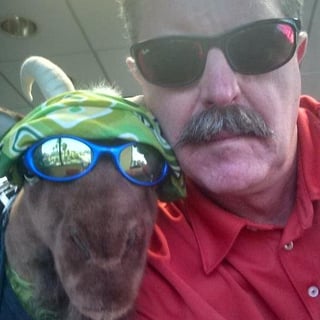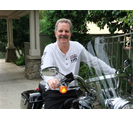“ If you do what you love, you'll never work a day in your life.” --- Marc Anthony
If you do what you love, you'll never work a day in your life.” --- Marc Anthony
“It's easy for the executive classes to embrace a 'do what you love and love what you do' philosophy, when they are wealthy enough to work hard only voluntarily, and when their jobs grant them status.” --- Alex Pareene
It may not shock you to learn I strongly agree with Mr. Anthony, and strongly disagree with Mr. Pareene.
I’ve always believed that people perform best in the activities they love. For this reason, individuals at the top of their professions are generally those with a passion for their field.
There are notable exceptions, of course. Andre Agassi famously said he hates tennis, and always has, yet he became the number one tennis player in the world. To him, tennis was a burden, something he had to do, initially to meet his father’s expectations, and later to meet his own expectations and those of others. It is possible, therefore, to be great at an activity without loving it, but that is clearly the more difficult path, and much less enjoyable.
In general, we find that people perform best at what they love.
This isn’t revolutionary, and shouldn’t be surprising. We naturally devote more time and energy to activities we enjoy. We spend more time thinking about how to get better at such activities, and more effort optimizing our skills; so it doesn’t feel like “work” to study and practice the things we enjoy – it feels like fun.
We also need to add a dash of realism. In my case, I love many activities, including spending time with my family, playing racquetball, skiing, or riding my motorcycle. At one time, I loved being at the beach, surfing or just hanging with friends. None of those activities, however, was likely to generate enough income for me to make a living, or at least enough to also enjoy the other activities in this list.
While some people are successful at what most of us might consider recreation, “doing what you love” must generally go beyond recreational activities. We must, therefore, look for a deeper understanding of factors that make us happy. For example, I discovered some time ago that I love to…
- be part of a winning team
- be part of a culture with strong positive values
- see constant improvement
- help others achieve their goals
Notice that nothing in this list deals with financial services or management. I could have found these elements in any number of industries or organizations, and at any level, but I just happened to find all of them at our Credit Union, as a member of senior management.
Another example: my daughter loves acting. She loves to develop characters or concepts, and to tell a story in a way that is meaningful to an audience. While she hopes to someday make acting a successful career, even if that doesn’t happen, she can easily utilize her passion and skills in other fields, and in ways that satisfy her underlying desire to tell a convincing story to an audience. She currently works as a Marketing Rep for another credit union, and finds it very fulfilling. She could also go into sales or any number of other career paths.
As for Mr. Pareene’s quote, he fails to realize that most members of the “executive class” weren’t born into that class, but achieved that status with great effort (although it may not have felt like “work” to them), loving what they do, and as a result, doing very well the tasks that made them successful.
I prefer the more optimistic view offered by Mr. Anthony, which promises that all of us can find joy in our work, by understanding what we truly want, and finding a career that offers those possibilities. We may not get paid to sit on the beach or to ride a motorcycle, but a career that matches our core values can provide even greater satisfaction.




%20(952%20x%20317%20px)-2.png)






